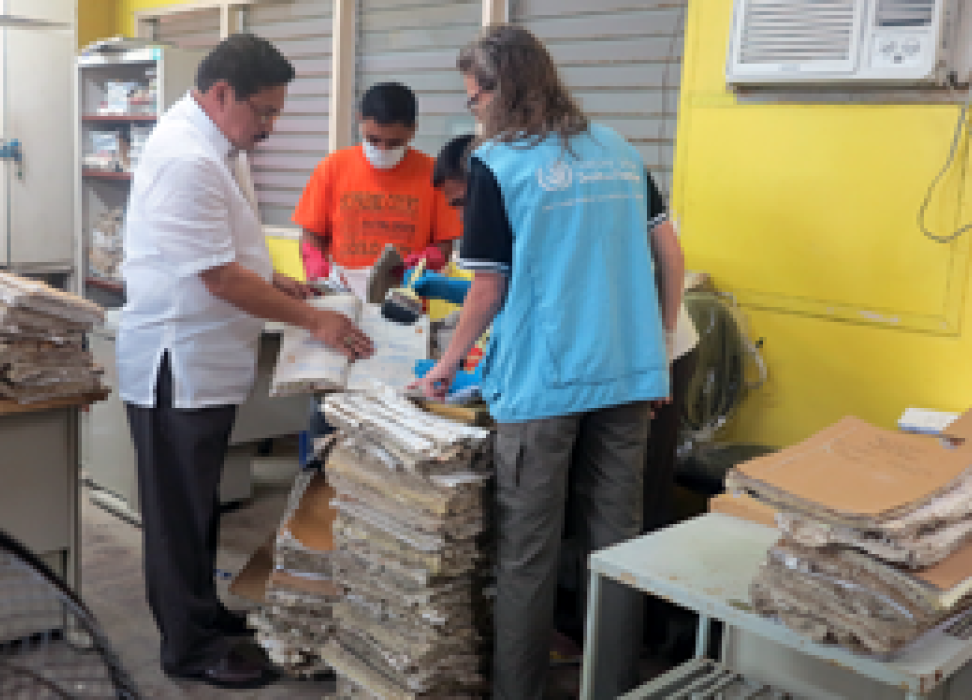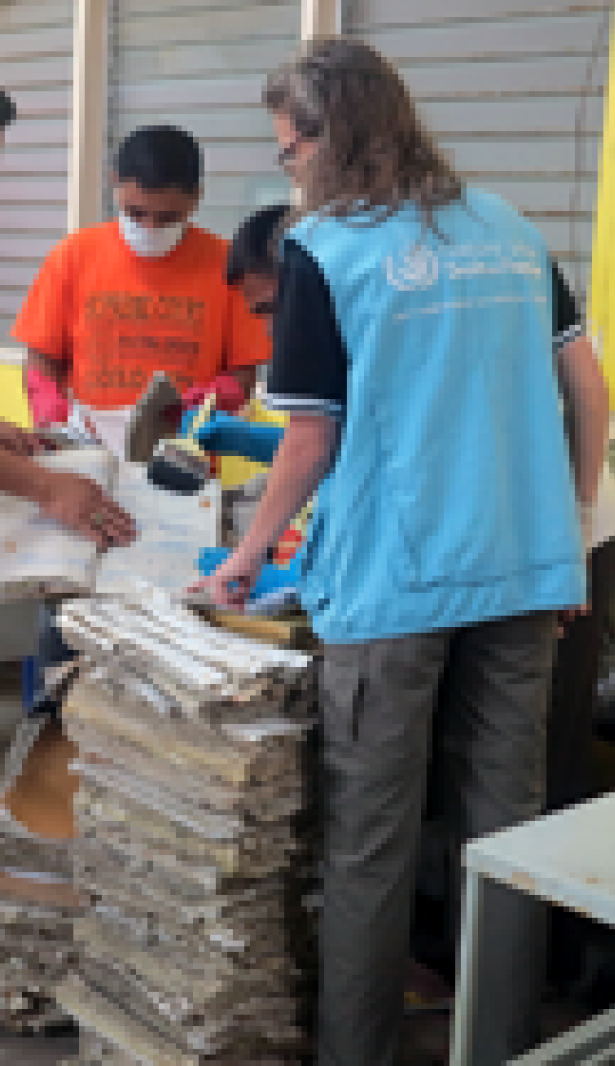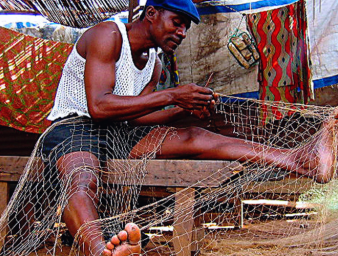Philippines: Justice in the wake of natural disaster
09 May 2014

Typhoon Haiyan has affected nearly ten million people in the Philippines, with more than four million displaced in nine regions. In the aftermath of the disaster, the administration of justice, an essential institution often overlooked, has been severely affected with court buildings, equipment and places of detention substantially destroyed in a number of major centres.
Alphinor Serrano, Executive Judge of the Regional Trial Court in Tacloban City, explains: “the scale and destruction brought by Typhoon Haiyan took us all by surprise. With no emergency plan to rely upon for a disaster of this scale, our court rooms, offices, files and equipment were destroyed. Ninety five percent of my case files were under water and mud and court staff spent their days manually drying files and hanging them out to dry.”
“While we have made great efforts to get our courts functioning again, it is difficult and time consuming work and any delay has an impact on a person’s right to speedy trial and other due process rights,” Serrano said.
The UN Human Rights Office collaborating with the Human Rights Commission of the Philippines has undertaken a joint project to assist in rebuilding the judicial process in the affected regions and to begin a process which ensures better preparedness for future natural disasters.
After the destruction of a number of prisons, some inmates were moved to other jails without adequate access to their families, lawyers and medical care. Often, too, the cases of people who had been arrested and detained before the typhoon could not be processed as the files had been destroyed or lost.
Senior Police Superintendant Domingo Say Cabillan, from the city of Tacloban has reported that he is “dealing with a significant number of detainees who have been held for five months in police cells. The maximum time limit in Philippine law for people to be brought before the Prosecutors office to file a case upon the commission of the crime is thirty six hours for grave offences.”
“As the case files submitted to the Prosecutor’s office have in many of these cases been washed away, we have struggled to resolve the situation of these cases caught in a legal limbo,” Cabillan said.
The Human Rights Office and Human Rights Commission of the Philippines have been working very closely with the police, prison authorities and judiciary to address these issues of concern. At the end of April, OHCHR organized with the Commission a roundtable on the administration of justice with representative of the judiciary, the Philippines police, the Public Attorney and Prosecutors Offices, the Bureau of Jail and Penology Management and the Warden of Leyte province.
Participants discussed the impact of typhoon Haiyan on the administration of justice, proposing solutions to case backlogs, including the situation of twelve inmates, who have been detained in police cells since the typhoon struck in November last year and recommendations to limit the devastating effects of future disasters.
Judge Serrano welcomed the initiative: “It is clear that we need to rethink our institutional preparedness so that we can reduce the disruption to the justice system after a disaster. We need to make clear recommendations for action and put systems in place such as storing information electronically.”
The Chair of the Commission on Human Rights of the Philippines, Loretta Ann Rosales stressed the importance of the collaboration with the UN Human Rights Office: “Our joint monitoring with OHCHR has shown that our justice system is not only vulnerable but has ceased to function for a significant amount of time in the aftermath of a disaster such as Haiyan.”
“Where can I go to challenge the legality of my detention if the court is destroyed and the records are washed away? We need to plan. When people caught in this legal limbo have little opportunity to claim their due process rights, and duty bearers in the administration of justice are not able to respond to the challenges of the legality of detention, the right to due process will not be fulfilled,” Rosales said.
“We must not forget the vulnerability of criminal justice systems during emergencies,” she said. “Access to justice should become a critical part of our future disaster risk, resilience and reduction efforts in the Philippines.”
9 May 2014




